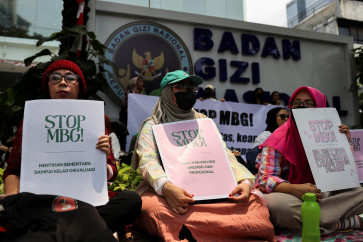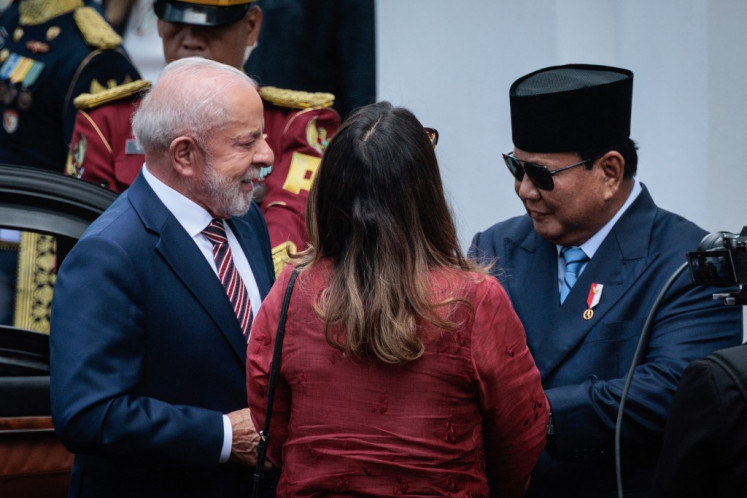Popular Reads
Top Results
Can't find what you're looking for?
View all search resultsPopular Reads
Top Results
Can't find what you're looking for?
View all search resultsBI ties bank services to capital level
Bank Indonesia (BI) has introduced several new regulations, including a much anticipated multiple-license requirement to classify bank services, to strengthen the nation’s banking system
Change text size
Gift Premium Articles
to Anyone
B
ank Indonesia (BI) has introduced several new regulations, including a much anticipated multiple-license requirement to classify bank services, to strengthen the nation’s banking system.
Under the multiple-license rule that will come into force next year, banks will be classified into four categories based on their capital level. Banks wanting to conduct certain businesses will need to either enlarge their core capital or merge with other banks to meet BI requirements.
“There are many banks that currently operate below capacity, even below their economic scale, prompting inefficiency,” BI Governor Darmin Nasution said at his speech in the annual Bankers’ Dinner in Jakarta on Friday evening.
Banks holding less than Rp 1 trillion (US$104 million) in capital, for example, will not be allowed to conduct electronic banking or foreign exchange transactions, while banks with capital between Rp 1 trillion and just under Rp 5 trillion will be allowed to offer those services.
Meanwhile, banks with capital between Rp 5 trillion and Rp 30 trillion will be allowed to provide full banking services and will be encouraged to compete at the regional level.
The nation’s biggest banks, i.e., those with a capitalization greater than Rp 30 trillion will be allowed to compete at the regional and international levels.
In addition, the multiple-license regulation also divides the archipelago into six zones.
Banks that have established branches in high-density provinces, such as West Java and Bali, will also be required to establish branches in remote provinces such as Lampung, West Sumatra, Maluku and West Papua, among others.
The rules also will also require that the nation’s banks allocate 20 percent of their credit portfolio to the small and medium enterprises (SMEs) credit segment, with the exemption of banks that focus on home lending.
“We want to ensure that the intermediary function [of banks] is still on the right track,” Darmin said.
BI also issued a new legal framework giving domestic banks the right to manage foreign-exchange funds. The central bank also granted the right, commonly referred to as trustee rights, to banks with a minimum capitalization of Rp 5 trillion.
The new scheme is expected to give incentives to exporters, especially oil and gas companies, to deposit their foreign currency proceeds in domestic banks.
According to central bank data, there are 11 oil and gas companies that currently deposit their export earnings in foreign trustees — eight in New York and three in Singapore — due to the lack of adequate financial instruments in Indonesia.
Taking aim specifically at foreign banks operating in Indonesia, the central bank issued a capital equivalence maintained assets (CEMA) regulation to require the banks to invest a minimum amount of capital in their Indonesian branches.
The minimum CEMA deposit for an individual bank will depend on its risk profile, with a range of 8 to 10 percent of their risk-weighted assets.
The capital then must be invested in Indonesia-based debt papers, either corporate or government bonds, with the central bank reserving the right to demand that the bonds be cashed if the bank is in trouble.
BI’s director for banking research and supervision, Irwan Lubis, told reporters of the rationale behind the rule. “This system will act as a buffer against an overseas banking crisis, because if a foreign bank suffers a crisis in its country of origin, then its branch in Indonesia will not be affected.”
The central bank also introduced a rule to set the minimum loan-to-value (LTV) of 70 percent for houses and cars for sharia banks that will take effect in April next year. A similar rule came into force for commercial banks in June. (sat)










